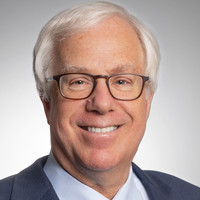One thing you have to say about President Donald Trump: Three years into his presidency, people don't believe a word he says. Not his Cabinet. Not Kellyanne Conway. Not the bartender at Mar-a-Lago.
The president has never seemed bothered that everyone appears to know he lies constantly; after all, half of America finds his unrepentant dissembling somehow refreshing. But his dishonesty on every subject under the sun did not position him terribly well to reassure Americans or the stock market about the coronavirus when he finally felt obliged last week to say something about it. What limited credibility he retains seemed to evaporate by the minute during last Wednesday's press conference, at which his disinterest in facts and disregard for them were on display. Trump's assertion that the number of coronavirus cases in the United States was "going substantially down, not up," echoed by his economic advisor's boast that "We have contained this," was flatly contradicted by various top officials of the Centers for Disease Control and Prevention. Each stated that more cases are expected. "It's not so much a question of if this will happen anymore," said Nancy Messonnier, director of the National Center for Immunization and Respiratory Disorders, "but rather more a question when this will happen and how many people in this country will have severe illness."
But it continued. We are "rapidly developing a vaccine," Trump proclaimed. A top CDC official shut that down as well. No vaccine would be ready for "a year to a year and a half," he said. Then there was this Trump tweet during a week in which the market lost 10% of its value: "Stock market starting to look pretty good to me," eye-rolling malarkey.
By Friday, Trump sounded like a cross between Captain Queeg and Mr. Magoo, prattling incoherently on the White House lawn. "We're ordering a lot of supplies," he told reporters. "We're ordering a lot of, ah, elements that, frankly, we wouldn't be ordering unless it was something like this. But we're ordering a lot of different elements of medical. We are working on cures, and we're getting some very good results. As you know, they're working as rapidly as they can on a vaccine for the future. And with that I think I can head out."
By "head out" he meant fly to South Carolina, where he told a rally that all this talk about the coronavirus was actually a "hoax." His son and namesake were likewise on message, accusing Democrats of hoping that the virus would kill "millions of people so that they can end Donald Trump's streak of winning."
Within hours, the death of the first American from the virus necessitated the hastily organized press conference, slapped together so the president could appear presidential and hopefully divert attention from the fact that, yet again, his claim of "hoax" was the hoax. Duplicity watchers did not leave the press conference empty-handed: The president who, in order to gin up his base before the 2018 midterms, conjured up the story about a fictitious caravan of terrorist marauders advancing on our southern border actually berated Democrats and the media for inciting "panic."
If Team Trump believed naming Vice President Mike Pence to lead the national response to the virus would engender trust, it was hard to know who the team thought it was kidding. There are department store mannequins that appear better equipped to handle matters of magnitude than Pence, whose area of specialization seems to be standing uncomprehendingly at his boss's side at events and, when called upon to talk, mouthing meaningless bromides.
The lesson is that credibility in a president isn't just good form and morally preferable. It lies at the heart of good governance. That this president so plainly lacks it is another reason why, for the good of the country, he has got to go.
Jeff Robbins, a former assistant United States attorney and United States delegate to the United Nations Human Rights Council in Geneva, was chief counsel for the minority of the United States Senate Permanent Subcommittee on Investigations. An attorney specializing in the First Amendment, he is a longtime columnist for the Boston Herald, writing on politics, national security, human rights and the Mideast.
Photo credit: ralfskysegel at Pixabay






View Comments